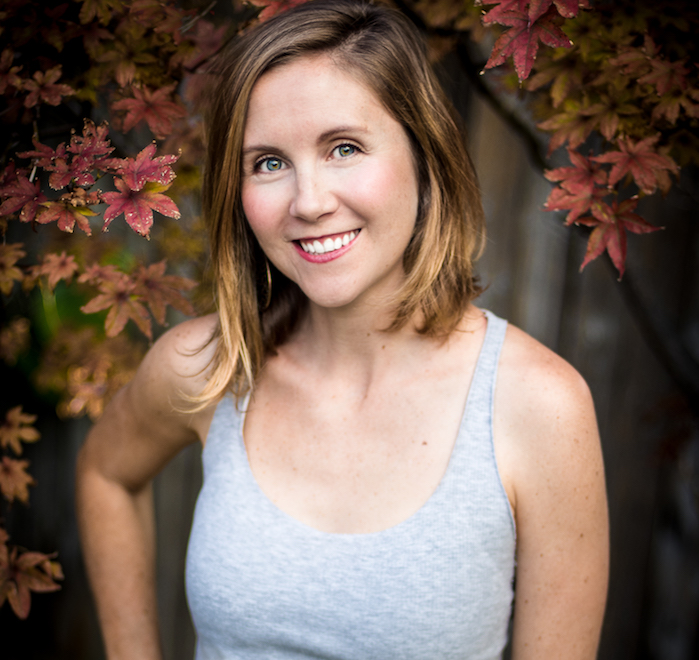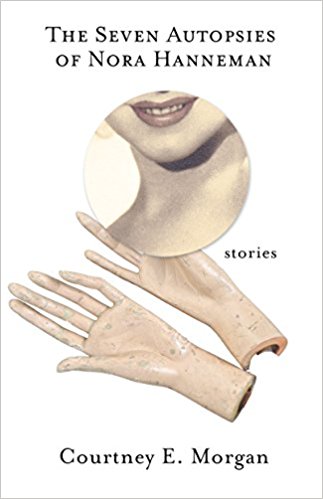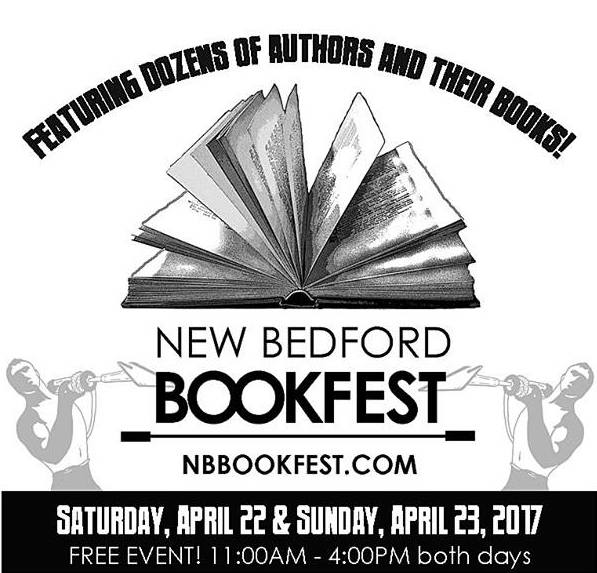Bookfest Author Courtney Morgan on Creativity and Sexuality

I met Courtney Morgan at an office marketing gig in Denver, Colorado. We crafted stories, slogans, and web content that encouraged people to travel, teach English, or study abroad. One of those slogans that I remember is, “The world is waiting.”
Indeed it was. Courtney and I both moved on, following our dreams, and it has been sweet to watch her writing career evolve from a distance. When I learned that Courtney had just published a book of short stories, I invited her out for the spring New Bedford Bookfest, figuring it was a long shot.
Fortunately people who follow their passions often do crazy things and Court booked a flight to Boston and shipped out a box of books.
So here we are all these years later producing web content together! This is a fascinating and inspiring interview about Courtney’s creative process and writing inspirations. I hope you will enjoy it and come to meet Courtney right here at Groundwork! April 22-23.
What inspired you to follow the path of creative writing?
Well, ha, I started as a biology major in undergrad (I wanted to be a wildlife biologist, the next Jane Goodall), and couldn’t hack it (or maybe just wasn’t mature enough to put in the effort), so I settled into literature and writing, because I was better at it. But joking and self-deprecation aside, I guess I’ve always been a writer. Reading and writing were always ways of coping with the world for me, and making sense of my own jumbled interiority. I’ve written stories and journaled since I was a kid; it was a way of understanding and constellating myself as a sensitive being in what often felt like a harsh and confusing place. I don’t think I really understand how I feel or think about something until I force myself to pass it from my brain to my hands and form it into language on the page. It’s a distilling method for me. I think my writing often takes dark and strange turns because it’s always been my way of processing those aspects of life.
Do you have a writing routine or any tricks/hacks you use to stay creative?
One hack I picked up and definitely fall back on often is from Anne Lamott’s book Bird by Bird. She has a section on something she calls “the one-inch picture frame,” and it basically gives you a means for breaking down whatever you’re working on into bite-size chunks. So rather than worrying about what the novel is about, and what’s going to happen at the end, and how is everything going to come together and work, and oh my god am I ever going to finish this damn thing… you just focus on the next one-inch segment. I just need a scene where this character has this conversation, I just need to describe this house, etc. It’s really anxiety-reducing, and just keeps you writing, which, most days, is the most crucial bit.
But on a deeper and perhaps stranger level, I see the creative process as very connected to the body, and particularly to sexuality—the drive to procreate, create, make—I see and experience the creative and the sexual impulse(s) as very interconnected. Which yes, is part of what drives that inquiry for me and why I’m so interested in the subject. So my creativity “routine,” keeping it supple and active, includes a lot of movement and some meditation/visualization type work. I’m working on building a course around this, finding ways to access and link and harness these impulses—coming soon!
What was the inspiration for your book The Seven Autopsies of Nora Hanneman?
Whew, I could probably fill another book with what inspired and drove the collection. It began with Balthus, a painter from the 20’s, whose depictions of girls and young women both fascinated and repelled me. The subjects often embody a very intense and self-contained sexuality, and it brought up a lot of things in me to see and consider girls as sexual subjects (rather than objects, or perhaps more accurately, the paradox of being both). A lot of stories sprang up in response to his works. I was inspired by a lot of horror films, and Barbara Creed’s work on “the monstrous feminine.” By the body, anatomy, and insects (especially the vocabulary of both anatomy and entomology). By the grotesque, by Kristeva’s abject, especially in relation to femininity and the female body. And by dozens and dozens of authors and artists, to name just a few: Yoko Tawada, Joanna Ruocco, Lidia Yuknavitch, Eimear McBride, Carmen Giménez Smith, Marcia Douglas, Aimee Bender, Kelly Link, Ana Mendieta, Cindy Sherman, Frida Kahlo.

You founded The Thought Erotic journal. What propelled you to start this project?
I wanted a space that curated both creative work engaging sexuality and gender, and analysis and social critique on the same, especially featuring voices that are often marginalized. Basically I think this whole area of life and inquiry is still shrouded in too much silence and shame, still ignored and considered weird or taboo to talk about. And it’s so vital for our understanding of ourselves and our culture. I don’t think any social justice movement will be complete without an active revisioning of our conceptions of gender and sexuality, and that begins with opening the conversation and starting dialogue.
Ed note: Check out the Thought Erotic here >
A lot of your work, both writing and otherwise, seems to center around themes of gender, femininity and sexuality. Have you learned anything from your audience’s response?
Hmm, that’s an interesting question. I mean, I may not have gotten enough audience feedback yet to really have a fully developed answer here… But I haven’t gotten much active pushback, which you might expect. Maybe the people who aren’t interested and comfortable with these topics just ignore it, but I also find that a lot of people are very interested and want to engage the subject in new and perhaps innovative ways. I think any time we have issues that are shunned or taboo, there’s some discomfort, followed by a strong sense of relief when they’re actually addressed directly.
What are you working on now?
A novel! It’s speculative fiction, set in a dystopic world (or future), where an army of Frankenstein-monster-like zombie creatures called the skinned (and made from humans’ body parts and integument) rule and wreak havoc, while a group of humans led by a trio of “Mistresses” (witches?), stage a resistance. The world is actually from a story in the collection, “Skinned,” and the young girl character, Senna, is the protagonist. I’m about 130 pages in, and it’s a bit of a mess, but it’s so fun to write. I’m really taken with the way speculative fiction can lend itself to social critique without losing narrative strength. I’m super into feminist and social activist spec fic right now, and it’s fun to try my hand at it. Not fun as in easy—it’s incredibly difficult and requires so much attention to craft (I have a big problem with any division between speculative and literary fiction that attempts to position genre as somehow less than or lowbrow [a problematic distinction and word in it’s own right, but I don’t want to get too off topic!]). But I just mean that I’m having fun working on something that prioritizes narrative, whereas my collection often allowed lyric and other qualities to be primary.
Do you have any reading recommendations for us?
Lidia Yuknavitch’s (anti)memior The Chronology of Water changed my world and I’m dying excited for her Book of Joan, out in April. Claudia Rankine’s Citizen is required reading right now for anyone alive in America, I think. And Maggie Nelson’s The Argonauts. I’m teaching a class on assembling a short story collection at Lighthouse Writers Workshop in Denver, and we’re looking at Helen Oyeyemi’s What is Not Yours is Not Yours and Amber Sparks’ The Unfinished World, which are both quite gorgeous, and Mona Awad’s 13 Ways of Looking at a Fat Girl, a biting and fresh work that’s a cross between a novel and a linked collection. Any of the authors I listed in the earlier questions on inspiration, and since I’m on a speculative run, my authors on rotation right now are Octavia Butler, Ursula K. LeGuin, Nalo Hopkinson, and Margaret Atwood, among others.
You can get copies of The Seven Autopsies of Nora Hanneman and meet Courtney at the New Bedford Book Fest April 22-23. Courtney will be reading passages from her book on Sunday, April 23 at 11:30am.
- Meet Our General Manager: Nicole Cosme - February 26, 2024
- Can I use a coworking space for Google My Business? - April 26, 2023
- Marketing Lab: The Best Business Resource on the South Coast You Didn’t Know About - March 23, 2023

